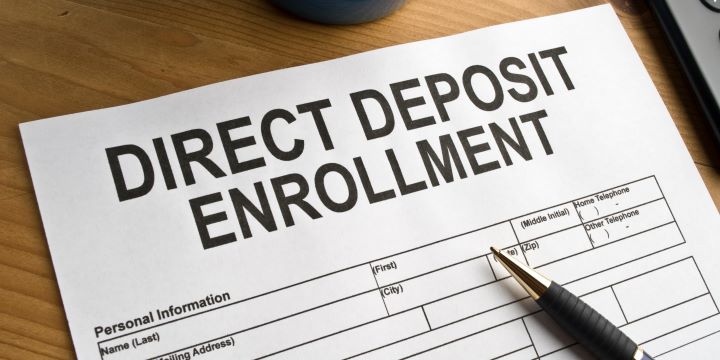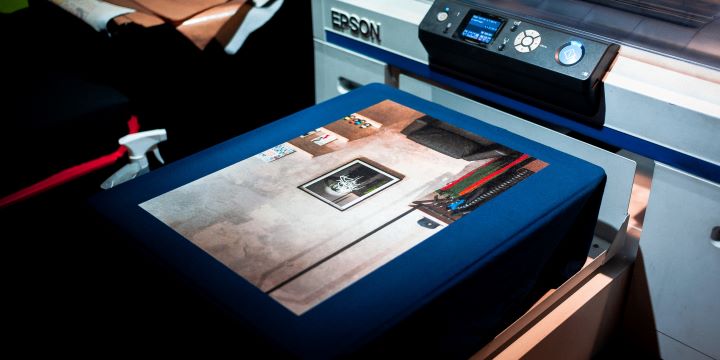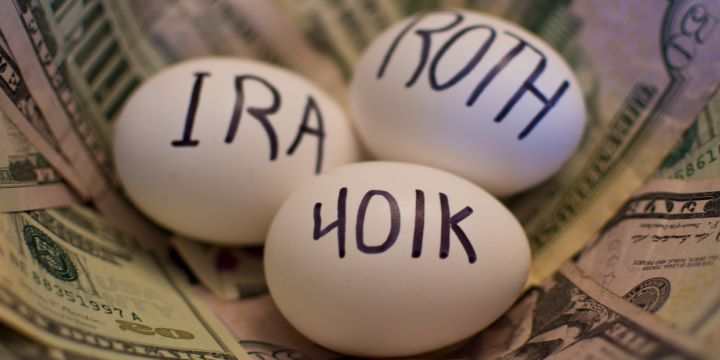How an Early Paycheck Access is Made Possible with Direct Deposit

Direct deposit is now the default for most employees. It’s fast, convenient, and secure. Employers electronically send paychecks to bank accounts before payday so you can access them anytime. With some companies, you can even have part of your paycheck automatically moved into a savings account—perfect for helping grow emergency funds or your down payment fund.
Saves You Time
When you get paid via direct deposit, it’s credited to your account electronically. It eliminates the delay between when your employer cuts the check and when it gets to you, which can be days or weeks. That means you have access to your money sooner, which can help you avoid late fees for bills due around payday. Direct deposit isn’t just good for paychecks — it can also be used to receive Social Security checks, pension payments, tax refunds, travel reimbursements, and more. That’s great for employers who don’t want to deal with the paperwork involved in preparing payroll, and it can be helpful for gig workers who may not always have easy access to a brick-and-mortar bank.
Some banks offer a feature called “Early Direct Deposit.” Get paid early with direct deposit before the typical payment date. It can be a big help for people who live paycheck to paycheck, and it could make the difference between getting caught up on bills on time or racking up overdraft fees. Another way you can save time is by having your direct deposit split into more than one checking account. It can be a great way to practice the old savings rule of paying yourself first, and it can help you achieve financial goals like saving for a home downpayment or vacation.
Saves You Money
Whether you work from home or the office, direct deposit makes it possible to get paid without waiting in line at the bank. It also helps prevent you from wasting hard-earned dollars by misplacing or losing paper checks. You can benefit from the convenience of early direct deposit. Available with select qualifying accounts, this service allows your funds to be deposited one or two days before the designated payday date.
If you want early direct deposit, you must provide your employer with the account numbers of the checking and savings accounts where you want your paycheck deposited, along with your routing information. It can be done during the onboarding process at your workplace or by contacting your employer’s human resources department directly.
Once you’re set up for early direct deposit, your money shows up in your checking account automatically on the scheduled payment day. You’ll feel better knowing that your money is secure, and you can avoid paying hefty late fees by paying past-due bills. You can even have a certain percentage of your paycheck deposited into a savings account. This way, your money is out of sight and out of mind, and it’s easier to save.
Helps You Stay Organized
You can end misplaced or stolen checks and piles of paper pay stubs in your filing cabinet with direct deposit. This payment method offers greater security and accuracy since the funds are digitally sent from one account to another through the ACH (Automated Clearing House) network. Check online or call your employer to confirm if you still determine whether your paycheck has been processed. With the reliability of direct deposit, you can more confidently set up automatic bill payments for utilities, mortgages, and other expenses to ensure your payments always arrive on time. It allows you to avoid late fees, which may increase your balance and cost you in the long run.
If you are moving from paper to direct deposit, ensure your new payment dates align with your credit card, loan, and utility due dates. Contact billing departments to change your due dates to match your recent cash flow if necessary. Some employers offer early direct deposit, a banking feature that lets you receive your payroll up to two days earlier than your scheduled payday. You must first register for direct deposit through your employer to benefit from this. Once you do, your employer submits payroll details to the Federal Reserve, which processes and deposits the funds into your bank account. You may also choose to have the money deposited into more than one account; many people use this feature to split their payments between checking and savings.
Keeps You on Track
When you set up direct deposit, you’ll typically provide your employer or payer with your bank account information, routing, and account numbers. You can find these numbers at the bottom of your online banking portal or your physical checkbook. Once you have this information, the money is automatically transferred to your payday account. That means you don’t have to remember to take a paper check to the bank on your lunch break or worry about losing it. It also makes it easier to keep up with your finances and work towards short-term financial goals like paying bills on time or saving for an upcoming expense.
Some banks offer early direct deposit, meaning you may get access to your paycheck up to two days before your scheduled payday. It helps you keep on track with payments and avoid late fees, especially on expenses due around the same time each month, such as rent, utilities, and phone or internet service. You can even choose to have some or all of your paycheck automatically deposited into savings or another account. It could be a great way to save money for a vacation, emergency fund, or anything else you’re saving for. You can find out if your bank offers this feature by checking their website or asking their customer support team.












